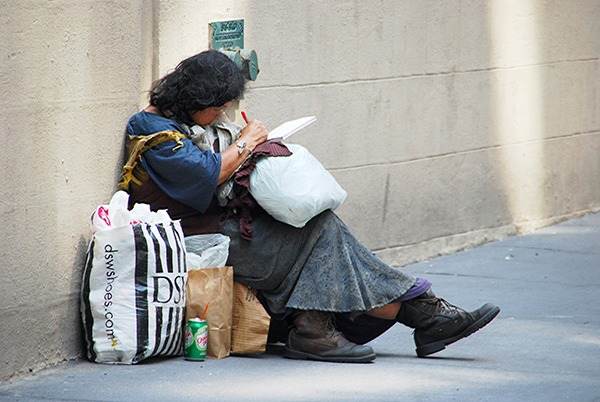The number of homeless women over 55 is expected to double in less than a decade, with new analysis showing far more are experiencing homelessness than originally thought.
Progressive think tank Per Capita found that without meaningful intervention more than 15,000 older women will become homeless by 2031.
It also found that data collected on homelessness at the last census may not reveal the true extent of the housing crisis.
Per Capita Executive Director Emma Dawson said while many men who sleep rough identify as homeless and were captured in the census, women are not adequately reflected as they are more likely to be in an emergency shelter, couch surfing or sleeping in their car.
“Women actually are probably more like 50 per cent of the homeless population, and it’s largely hidden because they are accessing those specialist crisis services,” Ms Dawson told AAP.
“Women don’t manage their homelessness in the same way as men do, often because they’ve got children with them.”
Per Capita examined data from the Australian Institute of Health and Welfare and found women were the majority of social housing tenants and the greatest users of specialist homelessness services.
“That doesn’t mean that they’re not in incredibly precarious situations, unable to provide a secure home for themselves and their children,” Ms Dawson said.
“Or for themselves (when) single following a relationship breakdown or being widowed in later life.
“These are very vulnerable groups who don’t show up in the obvious headline data, but that we know is a growing challenge.”
The ‘A Home of One’s Own’ report was commissioned by Australians Investing in Women, a not-for-profit which advocates for philanthropists to invest in women and girls.
CEO Julie Reilly said older women were the fastest growing group of homeless people in Australia and 9000 women become homeless every year after escaping family violence.
“The escalating cost and lack of accessibility for rentals and homes across Australia is fast condemning many women, of all ages, to an insecure and poverty stricken future,” Ms Reilly said in the report.
It called on social impact investors, philanthropists and developers to provide more affordable rental housing and for a shift towards longer-term leases.
The report also advocated for new financial models that would allow more self-employed Australians to be approved for a mortgage and for more co-operative housing to be built.
Rachael Ward, AAP
5/10/22

